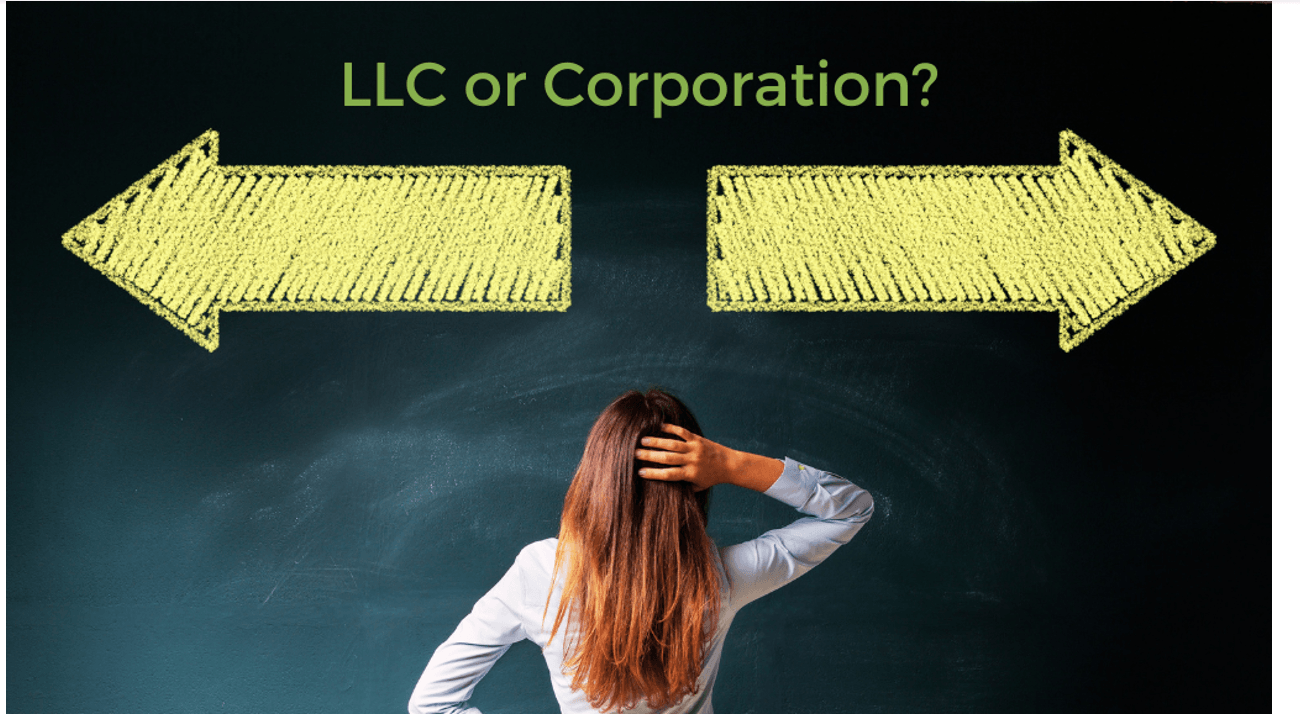Startup Battlefield: Why VCs Prefer C-Corps over LLCs for Startups

I have had many founders reach out that they want to set up a Delaware company, but often get confused on whether or not to register a C-corporation or a Limited Liability Company (LLC) based on their business model or structure.
It’s natural to wonder which option would be better suited for your needs especially when you are looking for Venture capitalists (VC) funding either in the early stage or the near future.
Registering a company in Delaware, whether as an LLC or a Corporation, is a popular choice for many businesses due to Delaware’s favourable business-friendly laws for startups. While both offer limited liability protection, VCs, including venture capitalists and angel investors, typically prefer investing in C-Corporations for various reasons, including but not limited to the ease of issuing different stock classes and flexible corporate governance.
To understand why VCs prefer LLCs, lets look at the whys in this article:
Taxation
LLCs operate as “pass-through entities,” meaning that profit or loss is passed through to the owners as income, and is taxable as such. In short, LLCs pass through operating income & losses to its members (investors). In the case of venture funds, that would mean that the fund’s Limited Partners (LPs) including the LPs of the LP could incur taxable income when they do not want to. Investors do not like the tax implications of an LLC because as a partner, they’ll be taxed on the entity’s income even in years when no cash is distributed to them personally. VCs often avoid this structure as they don’t want business profits or losses passing through to them directly. Preferably, VCs want to invest in C corporations, where the profit and loss are ascribed to the business and not the owners, allowing losses to be used to offset future revenues for tax purposes.
Also, some investors, such as venture capital funds/LPs, especially pension funds and foreign entities, cannot incur such income due to the way their entities are structured, can not invest in pass-through companies such as LLCs, because the VC fund has tax-exempt partners that cannot receive active trade or business income due to their tax-exempt status. Let’s break it down a bit. Imagine you’re running a venture capital fund, and within that fund, you’ve got partners like pension funds or foreign entities. Now, these partners have a sweet deal – they’re tax-exempt, meaning they don’t have to pay taxes on certain types of income.
Here’s where it gets tricky: if the venture capital fund decides to invest in a business structured as an LLC, that’s a pass-through entity. This means the profits and losses of the business flow through to the owners (in this case, the venture capital fund and its partners).
Now, tax-exempt partners, as the name suggests, don’t want to mess with taxes. But if the business they invested in, as an LLC, starts churning out profits, that income is flowing through to them, potentially creating a tax headache. Tax-exempt entities usually have restrictions on the types of income they can receive without losing their tax-exempt status, and active trade or business income might be a no-no.
So, to keep things simple and tax-efficient for everyone involved, venture capital funds often prefer to invest in C-Corporations. In a C-Corporation, the profits and losses stay with the corporation itself, not passing directly through to individual partners. This setup aligns better with the tax-exempt status of certain partners, avoiding any unwanted tax complications and allowing the venture capital fund to focus on growing businesses without worrying about tripping up their tax-exempt partners.
It’s like a strategic financial dance – choosing the right structure to keep everyone happy and tax-efficient.
Another reason why VCs prefer C corporations is that sometimes the terms of venture capitalists’ limited partnership agreements simply do not allow them to invest in any type of entity but C corporations. Sometimes, the terms outlined in venture capitalists’ limited partnership agreements restrict them from investing in anything other than C Corporations.
Double Taxation with C-Corporation
You might come across advice saying you should avoid forming a C-Corporation because of the dreaded “double tax.” Here’s the scoop: A C-Corporation indeed pays tax on its net income, which is the income left after covering expenses and salaries. If this corporation then dishes out dividends to its shareholders using that net income, those shareholders have to pay tax on those dividends.
But, and it’s a significant but, for many budding Software as a Service (SaaS) businesses on the growth path – aiming to raise funds, reinvest, expand rapidly, give out stock incentives, and ultimately be acquired or go public – this double-tax scenario is more of a rare occurrence. The focus for these businesses is on utilizing their profits to fuel growth and innovation, making the double-tax penalty less of a concern in their game plan. But here’s where the plot twist comes in for these businesses. Their focus is not on dishing out dividends; it’s on using those profits to fuel their rocket-like growth and innovation. They want to reinvest, hire more talent, develop new features, and expand their market reach.
In this case, the so-called double-tax penalty becomes more of a background noise than a front-and-center issue. These businesses are playing the long game, strategically using their profits as rocket fuel for expansion rather than distributing them as dividends. The aim is to create a powerhouse that attracts more investors, climbs higher in value, and positions itself for a potential acquisition or IPO.
So, while the double tax is a real thing, for these businesses with their eyes on the future, it’s like having a distant storm on the horizon – something you’re aware of, but it doesn’t dampen your enthusiasm for the exciting journey ahead.
Does it mean start-ups registered as LLCs do not get VC Investments?
No, but it might make them less attractive to certain VCs especially when they weigh their options and the impacts on their LPs. Three options we generally see investors explore:
- Invest as is. Potential for tax problems in the future.
- Invest through a “blocker”. The blocker tis created by the investor and is owned 100% by the VC fund and will be taxed like a C-corp to prevent any income to flow through. The blocker then makes the investment. Keep in mind the double taxation of any proceeds in case of an exit (proceeds get taxed on the blocker level plus on the individual LP level). That is the reason why most LLCs become C-Corps once they’re raising from VC firm. Most VCs do not invest in LLCs as creating this blocker would also cost the VC in setting up.
- Don’t make the investment
Can I just Register an LLC and later convert to a C-corporation if needed?
Yes, you can register your company as an LLC initially and later convert it to a C Corporation if needed. However, this is not advisable as it can be complex and not cost effective.
Conclusion
So it follows that startup founders, if they hope to win VC investment, should form their companies as C corporations. Starting as an LLC and converting to C corporation later is possible, but it’s a messy and expensive process.
Written by: Ifeoluwa Adepoju







